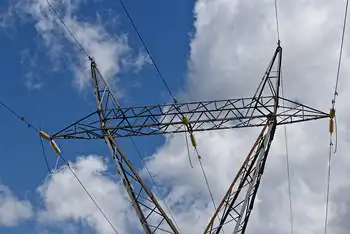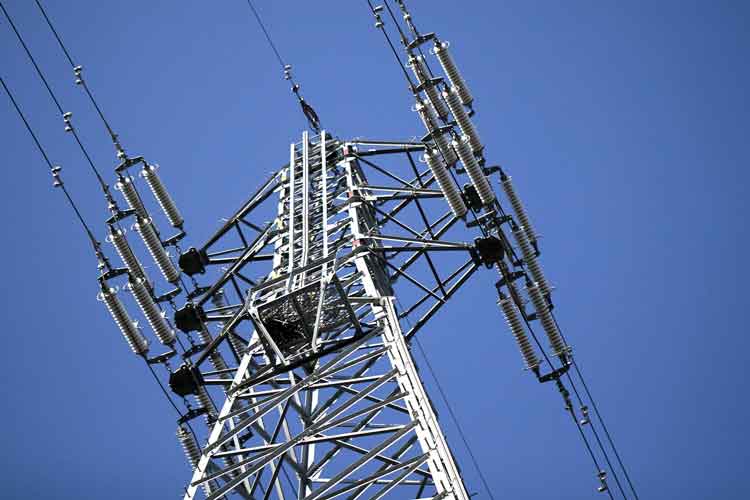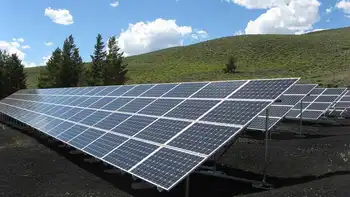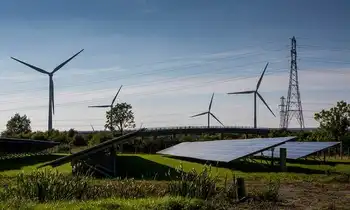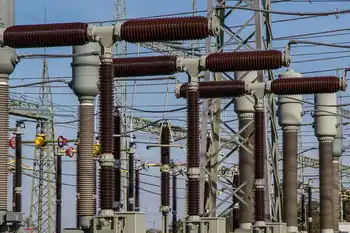Sask. Party pledges 10% rebate on SaskPower electricity bills

Protective Relay Training - Basic
Our customized live online or in‑person group training can be delivered to your staff at your location.

- Live Online
- 12 hours Instructor-led
- Group Training Available
SaskPower 10% Electricity Rebate promises one-year bill relief for households, farms, businesses, hospitals, schools, and universities in Saskatchewan, boosting affordability amid COVID-19, offsetting rate hikes, and countering carbon tax impacts under Scott Moe's plan.
Key Points
One-year 10% SaskPower rebate lowering bills for residents, farms, and institutions, funded by general revenue.
✅ Applies automatically to all customers for 12 months from Dec 2020.
✅ Average savings: $215 residential; $845 farm; broad sector coverage.
✅ Cost $261.6M, paid from the general revenue fund; separate from carbon tax.
Saskatchewan Party leader Scott Moe says SaskPower customers can expect a one-year, 10 per cent rebate on electricity if they are elected government.
Moe said the pledge aims to make life more affordable for people, including through lower electricity rates initiatives seen in other provinces. The rate would apply to everyone, including residential customers, farmers, businesses, hospitals, schools and universities.
The plan, which would cost government $261.6 million, expects to save the average residential customer $215 over the course of the year and the average farm customer $845.
“This is a very equitable way to ensure that we are not only providing that opportunity for those dollars to go back into our economy and foster the economic recovery that we are working towards here, in Saskatchewan, across Canada and around the globe, but it also speaks to the affordability for our Saskatchewan families, reducing the dollars a day off to pay for their for their power bill,” Moe said.
The rebate would be applied automatically to all SaskPower bills for 12 months, starting in December 2020.
Moe said residential customers who are net metering and generating their own power, such as solar power, would receive a $215 rebate over the 12-month period, which is the equivalent of the average residential rebate.
The $261.6 million in costs would be covered by the government’s general revenue fund.
The Saskatchewan NDP said the proposed reduction is "a big change in direction from the Sask. Party’s long history of making life more expensive for Saskatchewan families." and recently took aim at a SaskPower rate hike approval as part of that critique.
Trent Wotherspoon, NDP candidate for Regina Rosemont and former finance critic, called the pledge criticized the one year time frame and said Saskatchewan people need long term, reliable affordability, noting that the Ontario-Quebec hydro deal has not reduced hydro bills for consumers. Something, he said, is reflected in the NDP plan.
“We've already brought about announcements that bring about affordability, such as the break on SGI auto insurance that'll happen, year after year after year, affordable childcare which has been already announced and committed to things like a decent minimum wage instead of having the lowest minimum wage in Canada,” Wotherspoon said.
The NDP pointed out SaskPower bills have increased by 57 per cent since 2007 for families with an average household income of $75,000, while Nova Scotia's 14% rate hike was recently approved by its regulator.
It said the average bill for such household was $901 in 2007-08 and is now $1,418 in 2019-20, while in neighbouring provinces Manitoba rate increases of 2.5 per cent annually have also been proposed for three years.
"This is on top of the PST increases that the Sask. Party put on everyday families – costing them more than $700 a year," the NDP said.
Moe took aim at the federal Liberal government’s carbon tax, citing concerns that electricity prices could soar under national policies.
He said if the Saskatchewan government wins its court fight against Ottawa, all SaskPower customers can expect to save an additional $150 million per year, and he questioned the federal 2035 net-zero electricity grid target in that context.
“As it stands right now, the Trudeau government plans to raise the carbon tax from $30 to $40 a tonne on Jan. 1,” Moe said. “Trudeau plans to raise taxes and your SaskPower bill, in the middle of a pandemic. The Saskatchewan Party will give you a break by cutting your power bill.”





